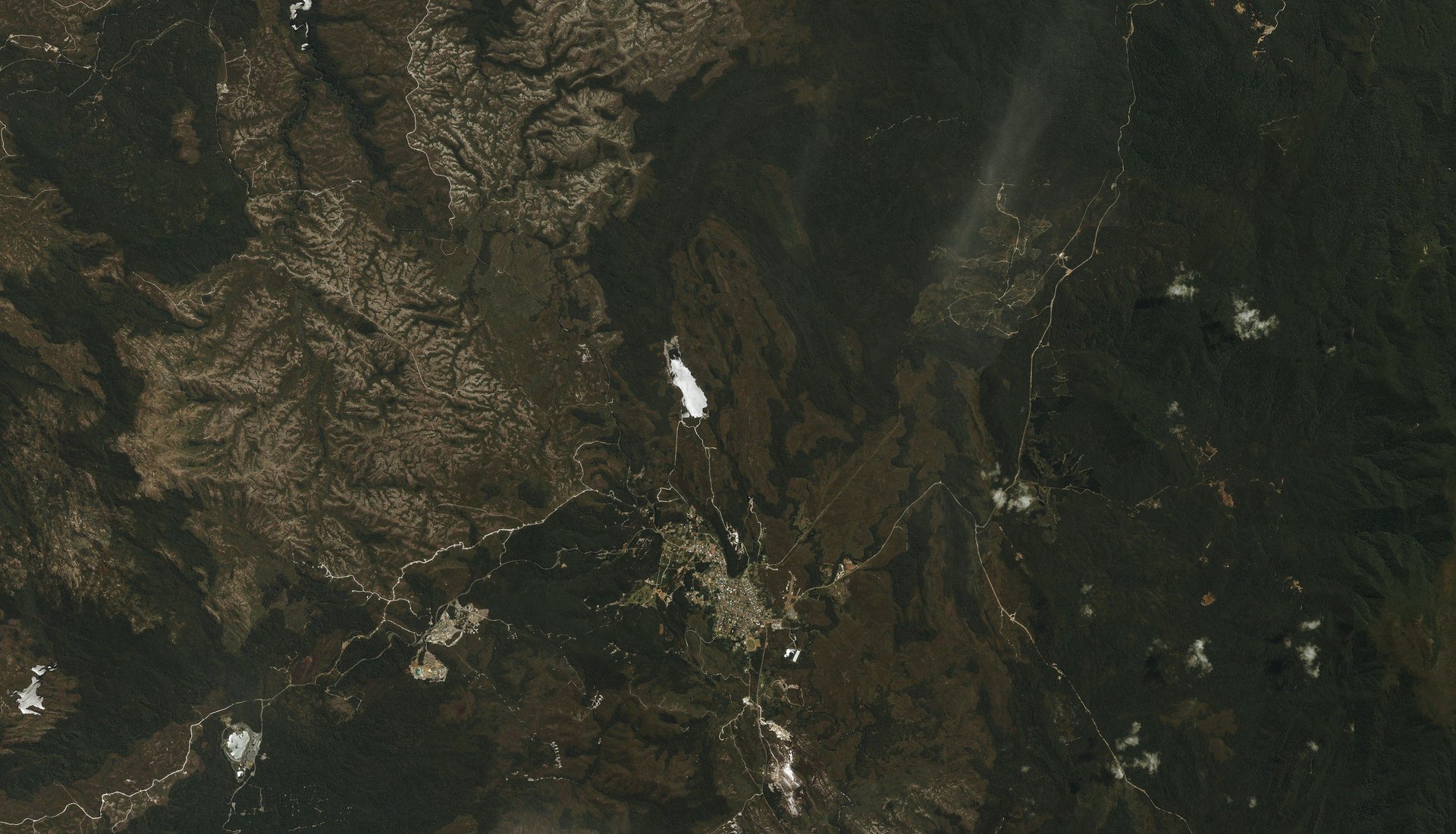
It should surprise no one that the tumultuous history and dramatic visual qualities of the West Coast have constituted a powerful stimulus for creative writers and that this is so for literary practitioners writ large as well as Tasmanians.
In the former category sits Roger McDonald, best known as the author of a glittering series of novels including 1915, Mr Darwin’s Shooter and The Ballad of Desmond Kale and works of nonfiction including Shearers’ Motel and The Tree in Changing Light. His credits include a host of Premiers’ prizes and the most prestigious national award for fiction, the Miles Franklin Literary Award. Few remember that McDonald’s first writing credits were in the field of poetry. In the early 1970s, he was, indeed, widely regarded as one of Australian poetry’s ‘coming things’.
Sad to say – I think it’s sad – this early prominence gave way to his distinguished career in prose. See what you think.
Here, from the early 1970s, is McDonald’s poetic encounter with Zeehan:
Zeehan’s Waste Acres
I slope with the wind, desiring this mind-out land
For its grasses, its girders, the coils of wire rope
And the stolid drums
Of indestructible grease.
I walk under the cold sun, apprehended
Beneath a blue pane, where pools are narrow, pebbled
And almost frozen. My boots
Crackle on scattered nails, my shadow
Dips and rises
From the open shaft.
Air, metal and rock
Grow from the valley –
Old hessian and concrete, mullock,
Cogs, fractured and half-buried bricks …
Those who were here will never come back.
After its brief exposure
The earth is inviolable.
Who else desires it but me?
I walk as the wind walks,
Harmless as shadow.
– Roger McDonald
Unlike McDonald, I’m a born and bred Tasmanian and I too am irresistibly drawn to Zeehan. It is its confronting industrial gauntness that renders Zeehan a particularly compelling subject for poetic engagement, I think. Or the potency with which a turbulent past infects the present. In my intermittent, though long, interaction with the West I confess to falling under the thrall of Zeehan, and the wonder of it is that I have not written more about it.
McDonald began with poetry and then moved to other things, while for me poetry was only ever a diversion, in the same category as cricket, football, movies, bushwalking. As a serious preoccupation, I came to it late. So it is that, though only a few years separate McDonald and myself in age, my poetic engagement with Zeehan is much more recent.
Here it is:
Pioneer Cemetery, Zeehan
Posterity, in this town, was of no account.
You’d not have thought to die here –
the idea was to salt it away and leave,
to be remembered, in God’s good time,
elsewhere.
The publicans had other ideas.
The sag-timbered mines had other ideas.
So we are here, we who drowned, we who drank,
we here by default, having died in the mud of the Somme.
The living were generous and they mourned well.
We had memory at our heads, nicely scrolled in stone,
nicely etched in good Huon pine.
But the living left,
for this was a town for vagabonds.
They left, and their leaving was the beginning
of the forgetting.
Fire came next, for this is fire country.
Gorse came, and thicket scrub.
And there was the end of the forgetting.
You are here, say, to find the grave of James O’Grady,
your great-great-grandmother’s brother-in-law.
Miner, good union man,
had a funeral that the AMA stumped,
and a stone.
Yes, he’s here, old rough and surly Jim.
He’s here somewhere.
Good luck finding him.
If he’s over there you’ll need to get through the swamp,
and watch out for old Joey Blake – that’s his domain.
So good luck with that.
If he’s this side of the swamp likely the gorse holds him.
Or, more probably still, the fierce lick of summer fire
doused all that signals a life on this earth,
just as, no doubt,
in another place it took his soul.
If you’re so set on saluting James O’Grady,
James O’Grady who you never knew,
do it here, then, by the road.
Rather mourn for us all in a smeared out, unfulfilling way,
we who had not meant to be here,
and leave James O’Grady safe with us
and our unremembrance.
– Pete Hay
Pete Hay
Pete Hay was born and raised on lutruwita / Tasmania's North-West Coast. He is a poet, essayist and social theorist who taught geography, politics and environmental philosophy at the University of Tasmania and still holds an adjunct position there. He has worked as a political minder and has dabbled in activism and public affairs commentary but is a refugee from all that. He retains a research interest in activism and its role within a democratic polity along with the nature of islands and island living and the relevance of the medieval fool trope to the times in which we live. He is equally interested in music, cricket, the beauty within language, the extraordinary cacophony of life on earth and the marvellous stories that people carry with them. Pete's most recent publication, Forgotten Corners: Essays in Search of an Island's Soul, won the Small Press Network's 2020 Book of the Year.
Website: petehaywriter.com.au